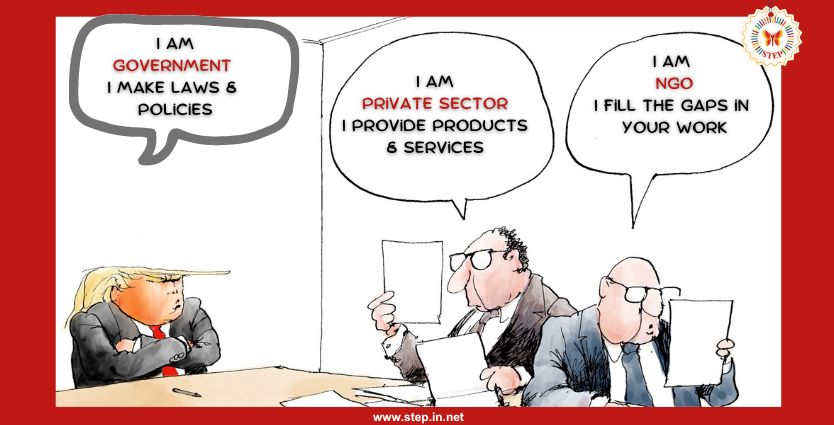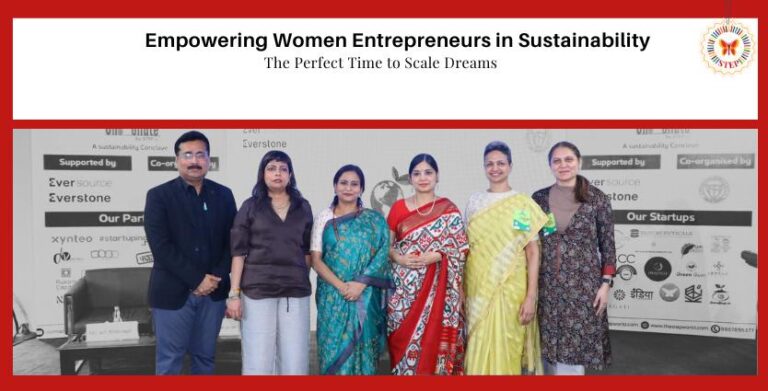Are NGOs Necessary?
In every society, two essential players work together to keep things running smoothly: the Government and the private sector. The Government is like the guiding hand, responsible for making the rules and ensuring everyone follows them, ensuring progress and harmony. The private sector is like the bustling heart, providing us with the goods and services we need to thrive. Together, they form a dynamic duo that shapes our world.
So where do NGOs fit in?
NGOs or Non-Governmental Organizations fill a crucial space as bodies that deliver enduring change. These entities act as powerful mediators between citizens and the government, focusing on improving the socioeconomic status of underserved communities. With 33 lakh NGOs in India, their effectiveness has surpassed government-implemented programs by a staggering 113%.
NGOs contribute to creating a more inclusive, equitable, and sustainable society, bridging the gaps between different stakeholders and fostering a collaborative approach to societal challenges through their various roles and activities.
Case Study: NGOs and the Effectiveness of Interventions – Evidence from India | VoxDev
A study was conducted in Uttarakhand to understand the impact of NGOs in 148 villages they worked before and 148 where they hadn’t. These areas received interventions for promoting improved cookstoves (ICS). The intervention included information, demonstrations, rebates, and purchase options. Villages with NGO presence had nearly 60% of households purchasing ICS, while non-NGO villages had only 45% of households buying ICS. NGO’s presence increased intervention effectiveness by about 31%. Furthermore, NGOs’ reputation positively influenced people to adopt improved cookstoves.
Transforming Lives through Welfare NGOs:
Welfare NGOs stand as guardians, reaching out to those often overlooked by the state, like migrant workers during the pandemic. Their diverse activities encompass human and labor rights, gender issues, healthcare, environment, education, legal aid, and impactful research. Some examples are:
- Oxfam India’s COVID-19 response ‘Mission Sanjeevani’ provided oxygen-generating plants, training to health workers, distributed life-saving medical equipment, PPE and testing kits, and food rations.
- In the last 4 decades, CRY has impacted the lives of 3 million children, providing education, health, nutrition, safety and protection, and participation.
- Swades Foundation works for rural lives through holistic development across Health, Education, Water & Sanitation, and Economic Development, creating a scalable, replicable, and community-centric model of sustainable development.
- Janodaya aims to improve the conditions of impoverished women and former prisoners by teaching women different life skills and helping them arrive at just and legal settlements.
Changemakers and Activists NGOs:
Opinion makers and activist NGOs are the driving force behind social progress. Fearlessly advocating for citizen rights and social causes, they challenge the status quo and demand policy reforms. Their contributions have led to groundbreaking laws, including environmental protection, the right to education, forest protection, and gay rights. Some examples are:
- In 2005, the Mazdoor Kisan Shakti Sangathan played a pivotal role in drafting and advocating for the Right to Information Law, which was passed by the Indian Parliament, giving the public the right to demand the financial statements of the Government.
- India decriminalized homosexuality after the continuous efforts of the Naz Foundation and AIDS Bedhbhav Virodh Andolan.
- NGOs played a crucial role in the aftermath of the Bhopal gas tragedy, addressing health, justice, and rehabilitation, and promoting global awareness of chemical industry processes and environmental safety.
- The Narmada Bachao Andolan (NBA) has done a great job raising awareness about the environmental, rehabilitation, and relief issues related to the Sardar Sarovar and other projects on the Narmada River.
Conclusion:
As the world faces ever-evolving challenges, the role of NGOs becomes even more vital in championing the cause of the underprivileged and striving for a brighter, more equitable future. By bridging the gaps between stakeholders, advocating for positive change, and uplifting marginalized communities, NGOs remain the key to building a society where every individual can thrive and contribute to collective progress.



